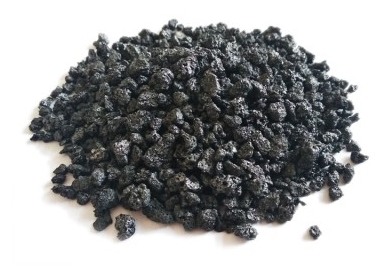
Calcined coke, also known as calcined petroleum coke (CPC), is a high-purity carbon material derived from the thermal treatment of green petroleum coke. This process, known as calcination, removes moisture and volatile matter, resulting in a product with a high carbon content and low impurities. Calcined coke is widely used in various industries due to its unique properties, such as electrical conductivity, thermal conductivity, and chemical stability. In this article, we will explore the diverse applications of calcined coke across six key industries.
One of the primary uses of calcined coke is in the production of aluminum. It serves as an essential ingredient in the manufacturing of anodes, which are used in the electrolytic reduction process to produce aluminum. Calcined coke's high carbon content and low impurities make it an ideal material for anode production, ensuring efficient aluminum smelting and reduced environmental impact.
Calcined coke is also used in the steel industry as a recarburizing agent. During the steelmaking process, carbon is lost due to oxidation, and it must be replenished to maintain the desired carbon content in the final product. Calcined coke, with its high carbon content and low impurities, is an excellent source of carbon for this purpose, ensuring the production of high-quality steel.

Another significant application of calcined coke is in the production of graphite electrodes. These electrodes are used in electric arc furnaces for the production of steel and other metals. Calcined coke's high carbon content, low impurities, and electrical conductivity make it an ideal material for graphite electrode manufacturing, ensuring efficient and stable performance in electric arc furnaces.
Calcined coke is also used as a reducing agent in the production of titanium dioxide, a widely used pigment in various industries, including paints, plastics, and paper. The high carbon content and chemical stability of calcined coke make it an effective reducing agent, enabling the efficient production of high-quality titanium dioxide.
Emerging applications of calcined coke include its use in energy storage systems and fuel cells. Its high electrical conductivity and thermal conductivity make it a promising material for use in advanced batteries and supercapacitors. Additionally, calcined coke's chemical stability and high carbon content make it a potential candidate for use in fuel cell technologies, such as solid oxide fuel cells.
In conclusion, calcined coke is a versatile material with a wide range of applications across various industries. Its unique properties, such as high carbon content, low impurities, and excellent electrical and thermal conductivity, make it an essential component in the production of aluminum, steel, graphite electrodes, titanium dioxide, and emerging energy storage and fuel cell technologies. As industries continue to evolve and innovate, the demand for calcined coke is expected to grow, further highlighting its importance in modern manufacturing processes.

Write a Message